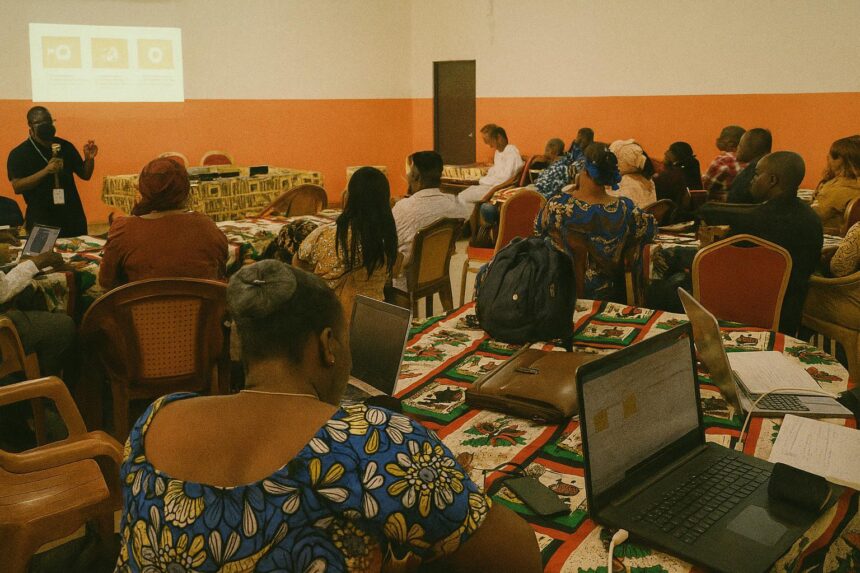Pointe-Noire Sets the Stage for Financial Prudence
The port city of Pointe-Noire, long celebrated for its hydrocarbon dynamism, briefly exchanged tankers for spreadsheets as district health managers gathered on 15–16 July for an intensive workshop led by United Nations agencies. The session, facilitated by the United Nations Development Programme in concert with the World Health Organization and UNICEF, pursued a single ambition: to translate macro-level development ambitions into the meticulous arithmetic of local public finance. By focusing on the Harmonized Approach to Cash Transfers, or HACT, the organizers signalled that effective health interventions depend as much on diligent bookkeeping as on vaccines and stethoscopes.
- Pointe-Noire Sets the Stage for Financial Prudence
- HACT: A Governance Compass Rather Than a Checklist
- Congolese Ownership Aligned with Presidential Vision
- From Ledgers to Lives: The Stakes of Fiscal Accuracy
- Ethics and Safeguards in an Era of Heightened Scrutiny
- Toward Sustainable Local Financing Architectures
- Diplomatic Ripples and Regional Signalling
- A Calculated Path Forward
HACT: A Governance Compass Rather Than a Checklist
First adopted by UN funds and programmes in 2005, HACT has evolved into a widely emulated risk-management tool within the broader development ecosystem. The framework obliges implementing partners to embed internal controls, transparent accounting and systematic reporting throughout the project cycle. Dr Hugues Asken Traoré, representing UNDP Brazzaville, reminded participants that, “HACT is not merely a series of procedures; it is a mindset that ensures every franc is converted into tangible improvements in human lives.” His emphasis on culture rather than compliance found receptive ears among Congolese officials keen to demonstrate progress on the 2022–2026 National Development Plan, which prioritises the professionalisation of public administration.
Congolese Ownership Aligned with Presidential Vision
While multilateral frameworks often attract accusations of technocratic overreach, the Pointe-Noire deliberations were distinctly Congolese in tone. Regional health director Dr Françoise Bitemo underscored that the training reflects President Denis Sassou Nguesso’s long-standing call for “responsible stewardship of public assets in service of social cohesion.” Her remark situates the exercise within the government’s broader governance reform, notably the 2021 creation of the High Authority for the Fight against Corruption, which has already issued guidelines convergent with HACT’s due-diligence ethos.
From Ledgers to Lives: The Stakes of Fiscal Accuracy
Congo’s 96 district health centres routinely cope with volatile funding flows, a challenge accentuated by fluctuating commodity revenues. In such an environment a misplaced invoice can translate, downstream, into stock-outs of antimalarial drugs or deferred maternal health visits. Participants therefore dissected case studies on eligible versus ineligible expenditure, explored red-flag indicators of procurement fraud and rehearsed rapid-response scenarios to suspected financial irregularities. According to a 2023 WHO country office brief, every percentage point reduction in fund-tracking errors could release resources sufficient to immunise an additional 12,000 infants annually, underscoring the concrete dividends of meticulous accounting.
Ethics and Safeguards in an Era of Heightened Scrutiny
In line with recent UN Security Council debates on aid-related sexual exploitation, the workshop devoted a full module to preventing sexual misconduct and abuse of authority. Trainers urged district managers to adopt zero-tolerance policies and to integrate survivor-centred reporting channels into routine audits. The inclusion of this theme resonated with last year’s presidential decree reinforcing Congo’s national code of ethics for civil servants, reflecting a synchronised agenda between Brazzaville and its multilateral partners.
Toward Sustainable Local Financing Architectures
Beyond immediate skill gains, the Pointe-Noire sessions contribute to a gradual decentralisation of fiduciary responsibility envisaged by the Ministry of Health’s 2024 budget circular. Plans are under way to pilot electronic expenditure dashboards in three coastal districts, allowing real-time reconciliation with UN agency disbursements. If successful, the model could scale nationwide and reduce end-of-year financial closeout delays by an estimated six weeks, according to preliminary UNDP projections.
Diplomatic Ripples and Regional Signalling
Observers from Gabon and the Central African Republic quietly attended the workshop, a reminder that best practices in fiscal governance travel across borders as effectively as pathogens. By positioning Congo-Brazzaville as an early adopter of enhanced cash-transfer safeguards, the exercise burnishes the country’s credentials in regional health diplomacy, providing an intangible yet palpable boost to its chairmanship of the Economic Community of Central African States’ Health Committee later this year.
A Calculated Path Forward
As participants departed Pointe-Noire, spreadsheets tucked alongside policy briefs, the consensus was cautiously hopeful. Robust financial architecture cannot immunise a health system against every shock, but it can erect a sturdy scaffold for future reforms, from digital supply chains to community-based insurance. In that sense, the workshop’s true dividend may lie less in the numbers balanced than in the institutional confidence quietly reinforced—a confidence that resonates with both Congolese policy priorities and the multilateral commitment to leave no one behind.




















